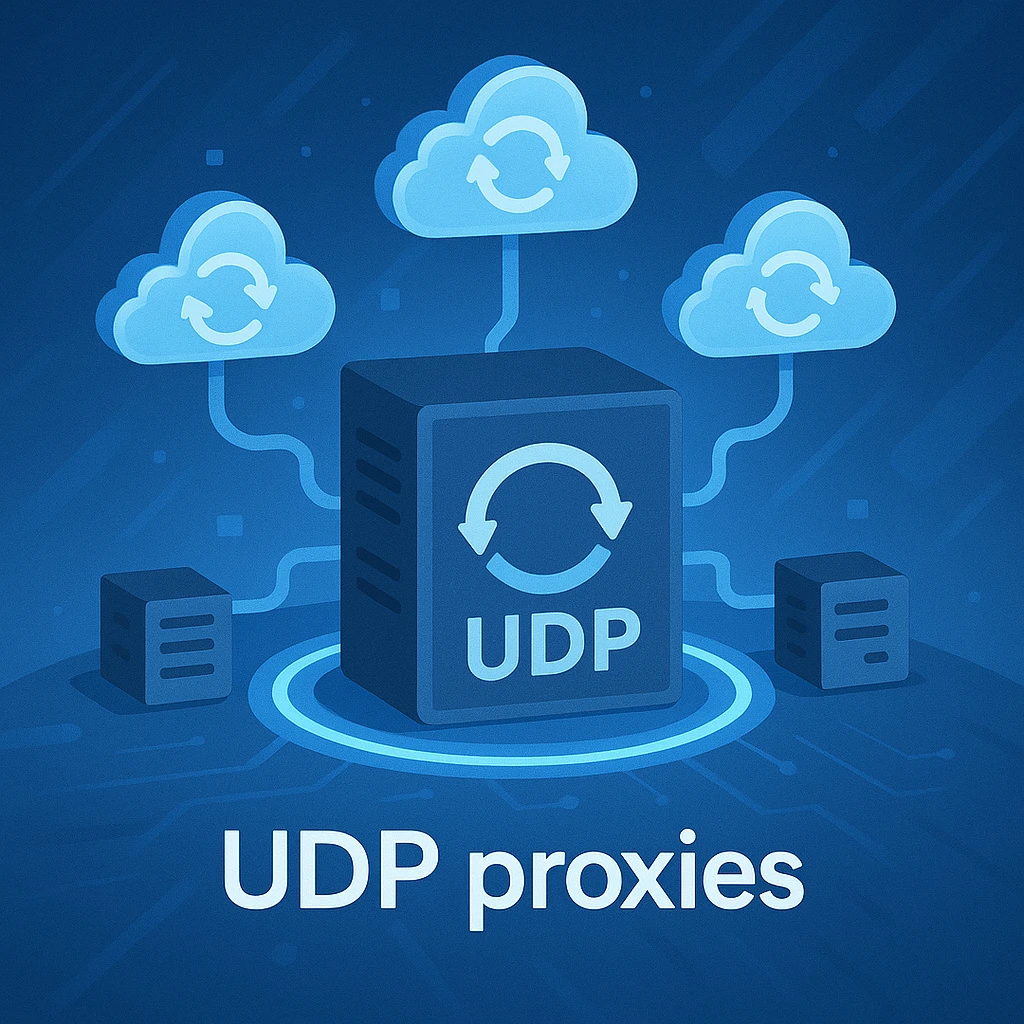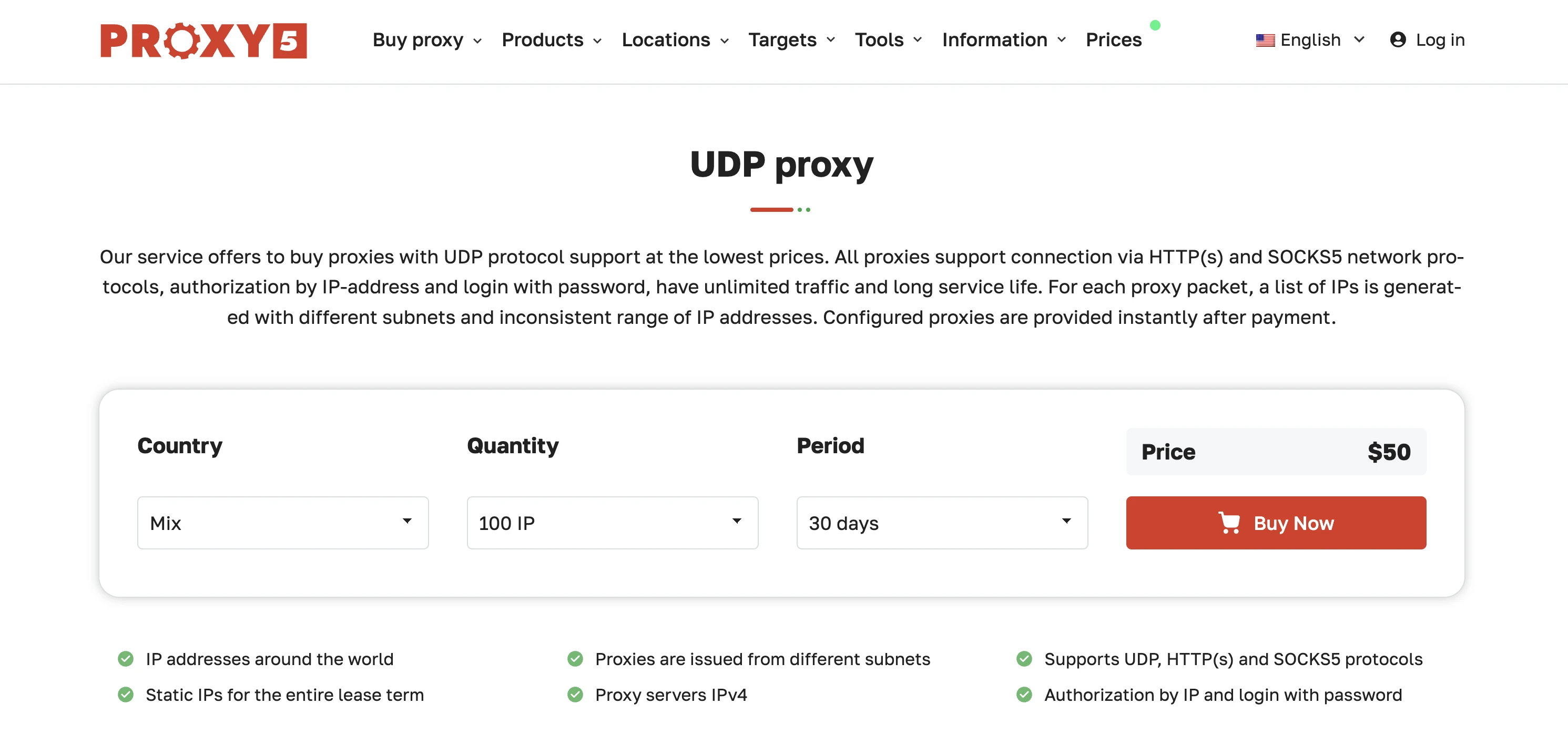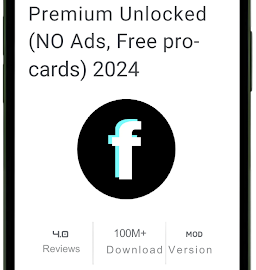Where to Find High-Quality Proxies with UDP Protocol Support?

UDP (User Datagram Protocol) proxies are a powerful solution for users needing fast, connectionless, and low-latency data transmission. Unlike TCP, which requires a handshake between the sender and receiver, UDP allows data to be sent without waiting for a response. This makes UDP ideal for time-sensitive applications like streaming, gaming, VoIP calls, and real-time data analytics.

In the context of proxy usage, UDP proxies act as intermediaries that support applications relying on the UDP protocol. They redirect traffic through external IP addresses, masking the user’s real location and enhancing privacy, while also enabling access to geo-blocked or restricted content.
Here’s what makes UDP proxies especially useful:
- Low latency transmission, ideal for real-time applications.
- No need for connection establishment, saving time in each session.
- Efficient for short message-based communication such as DNS queries or video streaming.
- Enhanced anonymity and geolocation flexibility when paired with services offering global IP coverage.
Key Features of Proxy5’s UDP Proxies:
- Support for UDP, HTTP(s), and SOCKS5 protocols.
- IP authorization and login/password authentication.
- Unlimited bandwidth with high durability for long-term use.
- Diverse IP subnets with non-sequential IP ranges for better anonymity.
- Instant proxy list delivery upon payment.
In summary, UDP proxies aren’t just for tech enthusiasts. They’re crucial tools for professionals who demand performance, security, and global accessibility without compromise.
Where Can You Get UDP Proxies?
If you’re wondering where to get fast, stable, and feature-rich UDP proxies, Proxy5 is a top-tier solution that’s optimized for marketers, SEO specialists, entrepreneurs, and traffic arbitrage professionals.

Proxy5 delivers enterprise-level proxy infrastructure to users at the lowest market prices. Their service isn’t limited to just UDP — each proxy also supports HTTP(s) and SOCKS5 protocols, meaning it can be used across a wide variety of tools, bots, and platforms.
Let’s explore why Proxy5 is an industry leader:
- Full protocol compatibility with HTTP(s), SOCKS5, and UDP.
- Seamless integration with all apps, websites, and crawlers.
- Access to IP addresses from multiple countries, perfect for geo-targeting.
- Over 150,000 IPs in rotation from more than 500 C-class subnets.
- No bandwidth caps — use as much traffic as you need.
- All proxies support 100 Mbps channels for stable, high-speed performance.
- Flexible authentication: IP address or username/password login.
- Ready-to-use proxy lists via URL integration or manual generation.
- Ability to refresh IPs every 8 days for higher anonymity.
- Full control panel to manage proxy lists and IP authorization.
- Get started with a free 60-minute trial featuring randomly assigned IPs.
With instant setup and intuitive client control, Proxy5 enables even non-tech users to get their proxies up and running without delay.
Should You Buy UDP Proxies or Use Free Ones?
The debate between using free vs paid proxies is as old as the internet. But when performance, security, and business outcomes are on the line, the answer becomes very clear.
Free proxies might seem tempting, but here’s what you typically get:
- Slow and unreliable connections that break at peak hours.
- No support for UDP, SOCKS5, or secure authentication methods.
- Overused IP addresses, flagged or blacklisted by major platforms.
- High risk of data interception or malware distribution.
In contrast, paid proxies from Proxy5 provide:
- Dedicated speed and uptime, crucial for automation and scraping.
- Guaranteed support for UDP, SOCKS5, and HTTPS protocols.
- Secure access methods, including IP binding and credentials.
- Clean IPs from rotating subnets that avoid detection.
- Professional support and instant setup upon payment.
For professionals running marketing campaigns, doing SEO at scale, or managing multiple accounts, the performance gap is non-negotiable. In short, investing in reliable paid proxies isn’t just smart — it’s essential.
How to Set Up UDP Proxies?
Getting your UDP proxies up and running is easier than ever. Here’s how you can configure them on Firefox browser or your Windows/macOS system.
Option 1: Using Firefox
- Open Firefox and type
about:preferencesin the address bar. - Scroll down to Network Settings.
- Click Settings under “Configure how Firefox connects to the Internet.”
- Choose Manual proxy configuration.
- Enter your Proxy5 IP and port:
- For HTTP: Use port 8085
- For SOCKS 4/5: Use port 1085
- If using username/password authentication, Firefox will prompt you to enter credentials.
- Click OK and restart Firefox to apply settings.
Option 2: Setting Up on Windows
- Go to Settings → Network & Internet → Proxy.
- Toggle on Manual proxy setup.
- Enter your proxy IP and port in the corresponding fields.
- Save settings and restart your application.
Option 3: macOS Configuration
- Open System Preferences → Network.
- Select your active connection and click Advanced.
- Navigate to the Proxies tab.
- Check SOCKS Proxy or HTTPS Proxy and input your Proxy5 IP and port.
- Enter credentials if prompted.
- Click Apply to save changes.
The fastest way to test if the proxy works is to use passwordless access via:
- Port 8085 for HTTP/HTTPS.
- Port 1085 for SOCKS 4/5.
With Proxy5, setup takes just minutes — no special software or technical knowledge needed.
How Users Apply UDP Proxies in the Real World
UDP proxies serve various functions beyond basic internet privacy. In industries where speed, reach, and automation matter, UDP proxies become indispensable tools. Here’s how real users deploy them:
- SEO scraping across multiple geolocations.
- Web automation for eCommerce, booking, and registration bots.
- Traffic arbitrage to test ads in multiple countries.
- Gaming — reducing lag and avoiding IP bans.
- Streaming — accessing content with high-speed, low-latency connections.
- Data harvesting from APIs and public datasets.
- VoIP services needing real-time packet transfer.
- Performance testing for server latency from multiple regions.
- Ad verification in different countries.
- Load balancing and geographic rotation for CDN simulations.
In each use case, Proxy5’s UDP-enabled infrastructure ensures users get consistent performance, low latency, and secure access from virtually anywhere.
UDP proxies aren’t a luxury—they’re a necessity for serious digital professionals. Whether you’re optimizing campaigns, scraping SERPs, or handling thousands of data points across countries, the power of fast, private, and protocol-flexible proxies can’t be overstated.
Proxy5 delivers exactly that, and more — with unbeatable pricing, diverse subnet allocations, and full compatibility across UDP, HTTP, and SOCKS5 protocols. Stop settling for free, unstable connections. Take control of your traffic with Proxy5.














